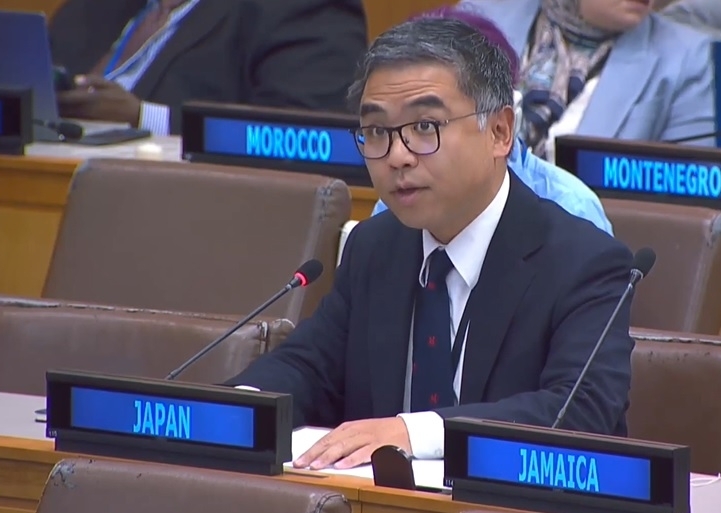Statement by Mr. MIYAMOTO Sogaku, Counsellor, Permanent Mission of Japan to the United Nations, at the 79th Session of the Third Committee of the United Nations General Assembly, General Discussion on the Report of the United Nations High Commissioner for Refugees
2024/11/7

(As delivered)
Thank you, Madam Chair.
I thank the United Nations High Commissioner for Refugees for his briefing.
First, I would like to commend UNHCR, under High Commissioner Grandi’s leadership, for its unwavering commitment to addressing the increasingly severe crises faced by refugees and other forcibly displaced. Japan remains dedicated to collaborating closely with UNHCR to address the challenges of forced displacement.
In this regard, Japan fully supports the draft UNHCR Omnibus resolution, which we have cosponsored, to be adopted by consensus. We believe this resolution is vital to bolstering UNHCR’s efforts in strengthening the international protection framework for those who are forcibly displaced and assisting governments in meeting their protection responsibilities, while emphasizing the importance of pursuing durable solutions. We encourage other Member States to be cosponsors of the resolution.
Madam Chair,
Japan is deeply concerned that forced displacement has reached record levels, with over 120 million people displaced due to persecution, conflict, violence or human rights violations. Regions such as the Middle East, Sub-Saharan Africa, Central America, and South Asia bear the brunt of this crisis, with countries including Syria, Afghanistan, Sudan, South Sudan, and Myanmar among the most severely affected. Intensifying natural disasters due to climate change have only compounded this dire situation.
Japan remains steadfast in its support for refugees, internally displaced persons and other forcibly displaced people across the globe. We also continue our efforts to alleviate the growing burden on countries that host large numbers of displaced people from its neighbors.
Madam Chair,
I would like to highlight three key priorities that Japan believes are crucial in addressing the crisis of forced displacement.
First, respecting and upholding International Humanitarian Law is essential for mitigating forced displacement. By ensuring that civilians are protected, humanitarian assistance is accessible, and non-combatant infrastructure remains intact, we can help reduce the scale of forced displacement and safeguard communities from the worst impacts of war. We must work together to promote adherence to IHL, holding violators accountable and reinforcing mechanisms that protect civilians.
Second, as refugees and displaced people who are put in vulnerable situations subsequently face more complex and grave threats, the human security approach, which is not only a concept but also a useful tool for addressing issues such as climate change, digital technology, health, poverty and inequality, and conflict and violence, is increasingly relevant and crucial. Japan will continue to implement programs on the ground focused on human security, including through UNHCR.
Third, as the number of forcibly displaced people exceeds 120 million people, relying solely on emergency humanitarian assistance is insufficient. We must adopt a medium- and long-term comprehensive approach. In this spirit, Japan launched the Multi-Stakeholder Pledge on the Humanitarian-Development-Peace (HDP) Nexus at the Global Refugee Forum last December, and in this regard, Japan is making tangible progress.
In conclusion, Japan remains deeply committed to alleviating the plight of refugees and displaced persons and welcomes the adoption of the Pact of the Future which addresses the issue of forced and protracted displacement. We must all envision and work towards realizing a future where every refugee and displaced person can share their dreams and have the opportunity to work towards making them a reality.
I thank you.
